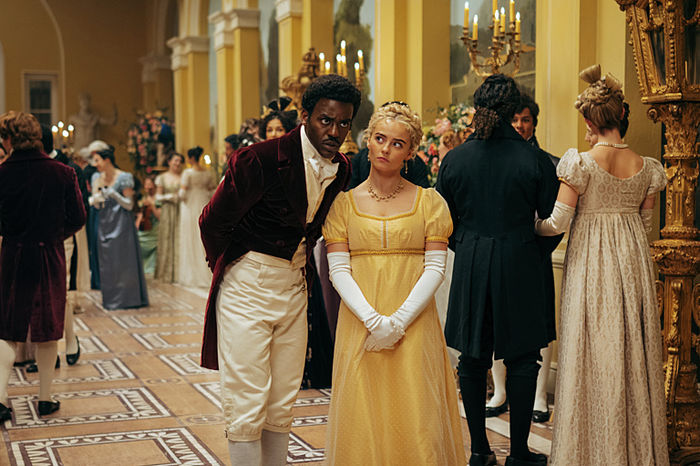We’re living in a Wong Kar-wai world
Scotia Smith explores the legacies of Hong Kong’s most celebrated director

On a random Tuesday several years ago, I noticed I was living in a Wong Kar-wai world: one full of lonely people yearning for love, comradery and nostalgia. Kar-wai has expressed these and countless other emotions relevant to the everyday person throughout his career. Known as the “Philosopher of Loneliness”, the Hong Kong director is praised, not only by cinephiles, but also acclaimed filmmakers such as Martin Scorsese, Christopher Nolan and Quentin Tarantino.
But why are Kar-wai’s movies loved so strongly in every corner of the world?
“Wong depicts love as the single most important thing in life”
1980s New Wave Hong Kong cinema differed significantly from the city’s usual output, which often consisted of kung fu action blockbusters or crime thrillers starring renowned stars like Bruce Lee or Jackie Chan. This New Wave contained much more human and universal themes such as melancholy, heartbreak and the feeling of being an outsider in your own home. Kar-wai spearheaded the movement, achieving prominence thanks to his unique cinematography, poetic stories of love and loss, and engagement with the 20th-century Pop cinema movement, all of which stood out against the backdrop of Jackie Chan’s brutal karate.
One of the main identifiers of a Wong Kar-wai film is the cinematography. Alongside Christopher Doyle, Kar-wai developed a truly distinctive visual style. Through schismatic camera movements and vibrant colours, including neon greens, yellows and reds, Wong expertly unravels his usually non-linear storylines. He frequently downplays the role of dialogue in his films (often, Wong doesn’t have a script but asks the actors to improvise), instead expressing the inner thoughts and deepest emotions of characters visually, through his colour choices. Blues highlight the melancholy of life, reds suggest passion and longing, and neon greens evoke the nostalgia and loneliness of everyday metropolitan existence.
“His films turn depictions of repetitive life into dances of poetry”
The most quoted monologue from Wong’s movies comes from He Zhiwu’s voiceover in Chungking Express. A desolate police officer receives a phone call on his otherwise lonely birthday from a woman whom he says he will remember forever. In a Twelfth Night-esqe troubadour moment (mirroring Orsino’s opening speech), he laments while grasping a pineapple can, “If memories could be canned, would they also have expiry dates? If so, I hope they last for centuries”. Besides being pinned onto every “New Wave Hong Kong” Pinterest board in existence, the quote perfectly encapsulates what Wong eloquently portrays in his films. Wong tells the stories of pedestrians: passers-by on the streets, the people patiently waiting in queues at supermarkets. His films turn depictions of repetitive life into dances of poetry. The use of the same actors in many of his movies (Tony Leung Chiu-wai, Faye Wong and Takeshi Kaneshiro) assists in highlighting the monotony of life as, not only are the characters seeing the same people, but so are the viewers.
Yet, despite all this loneliness and melancholy, Wong depicts love as the single most important thing in life. His movies exude warmth and comfort, emphasising the gravity of love with each wistful glance, swift camera shot and soundtrack choice.
Hong Kong is as much a repeating character in his films as the actors. His movies are so loved, both domestically and internationally, due to their effortless depictions of people attempting to carve a place for themselves among the hustle and bustle of the neon city. Wong and Doyle routinely succeed at grabbing the heart of Hong Kong and visually transporting the viewer into the hubbub of its inner-city, where “every day we brush past so many other people. People we may never meet or people who may become close friends” (Chungking Express). That’s life in the big city…
Wong Kar-wai once said, “Cinema was a dream … something you wanted to explore,” and he’s created masterpieces with exactly that in mind. Chungking Express, Fallen Angels, In the Mood for Love and Happy Together (to name but a few) mirror modern issues in vibrant yet recognisable landscapes, giving viewers a chance to reflect on their lives. He makes movies for those who question if they are in the right place, for those who feel the monotony of life, and for those who crave love in the big city more than anything. Although happy endings are few and far between in Wong’s films, I hope the memories made watching them will never expire.
 Comment / Plastic pubs: the problem with Cambridge alehouses 5 January 2026
Comment / Plastic pubs: the problem with Cambridge alehouses 5 January 2026 News / Cambridge academics stand out in King’s 2026 Honours List2 January 2026
News / Cambridge academics stand out in King’s 2026 Honours List2 January 2026 News / Cambridge businesses concerned infrastructure delays will hurt growth5 January 2026
News / Cambridge businesses concerned infrastructure delays will hurt growth5 January 2026 News / AstraZeneca sues for £32 million over faulty construction at Cambridge Campus31 December 2025
News / AstraZeneca sues for £32 million over faulty construction at Cambridge Campus31 December 2025 Interviews / You don’t need to peak at Cambridge, says Robin Harding31 December 2025
Interviews / You don’t need to peak at Cambridge, says Robin Harding31 December 2025










